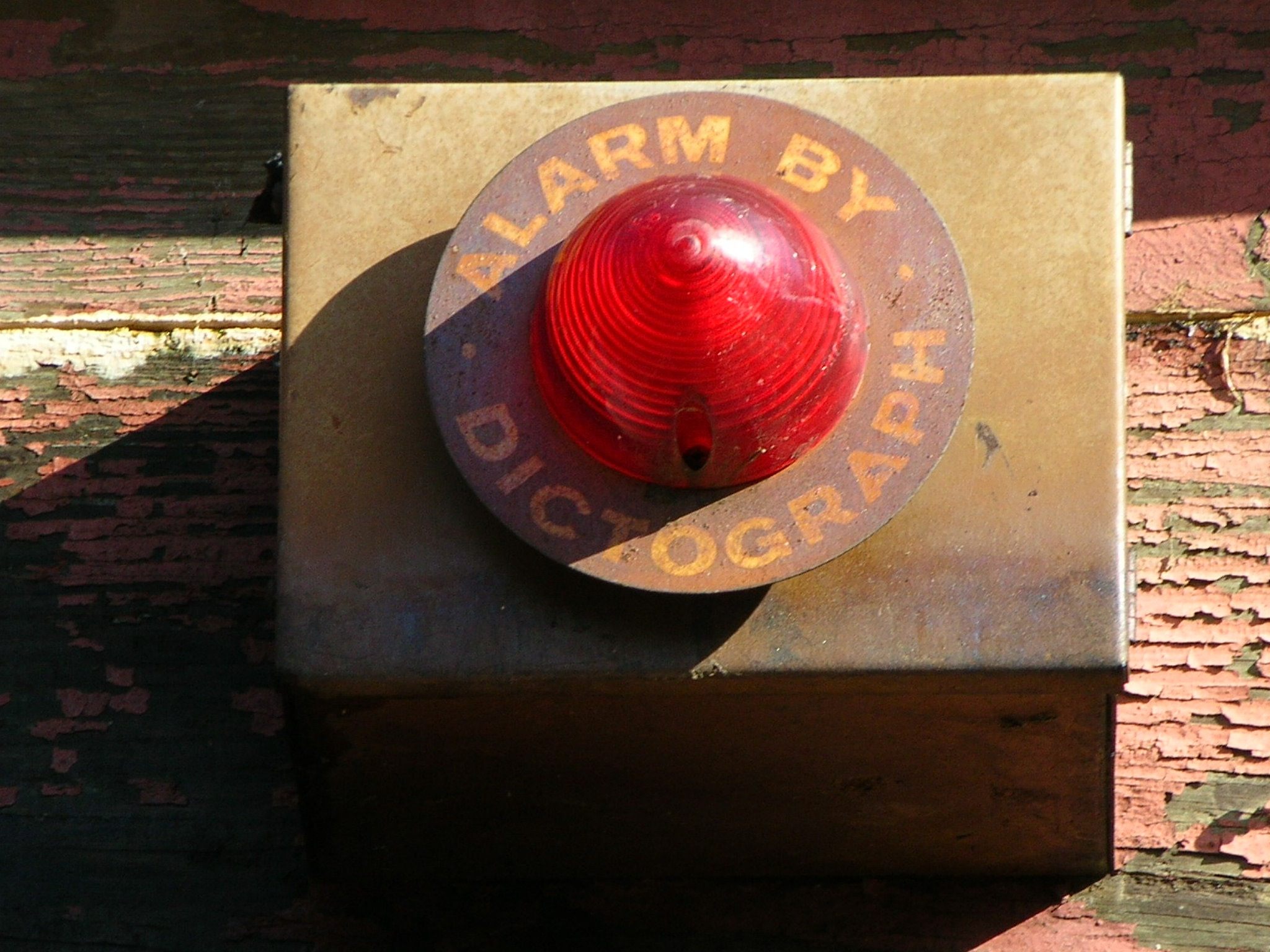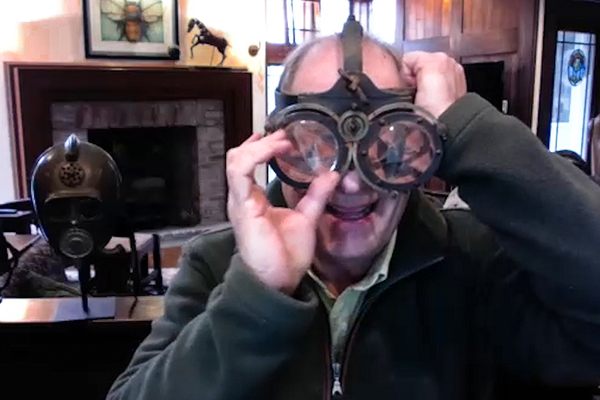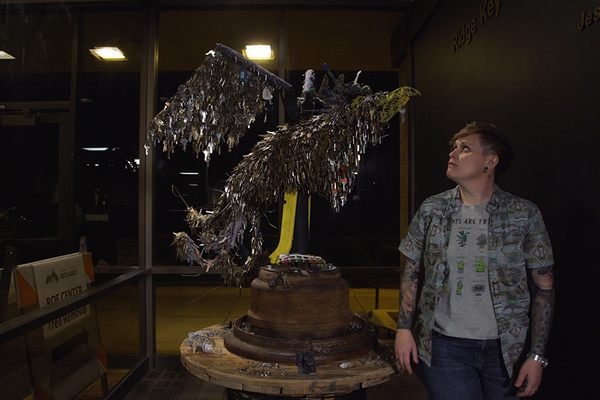Why Don’t They Make Alarms Like This Anymore?
They are pretty cool-looking.

Bright red Dictograph alarms, like the one above, may be the Platonic ideal of alarms—you can just picture that light flashing while the machine screeches its warning. The company that made them shuttered years ago, but they can still be found adorning buildings from New York to Kansas City to Alexandria, Va.
The one above was found in a back alley in Baltimore’s Hampden neighborhood, on a parking garage, says photographer Teresa Duggan. ”This was on the back of an abandoned garage about 10 years ago, near its roof, and the cool vintage red light caught my eye,” she writes. The building’s since been renovated, she says, and the alarm is long gone.
The Dictograph Products Company’s first success was for a different sort of auditory device: the firm began as Turner’s General Acoustic Company and purchased the technology for the first electrical hearing aid. But the most useful application of the technology, it turned out, was in a recording device that could take dictation from executives—or eavesdrop on anyone who wandered too near it. The company changed its names and coasted through World War II selling these subversive spy devices.
In the 1950s, though, Dictograph Products was looking for new markets. In 1951 the company applied for a patent on a new fire alarm—temperatures rising to a dangerous degree would trigger its circuit and sound a warning.
The timing was bad. It was becoming clear that alarms that sensed smoke were superior to those that sensed temperature, and with no new hit products, the company shuttered a few decade later. Today, the only reminders of its existence are the occasional ancient alarms hanging on the side of a building—and a fairly robust market for its charming old dictographs.











Follow us on Twitter to get the latest on the world's hidden wonders.
Like us on Facebook to get the latest on the world's hidden wonders.
Follow us on Twitter Like us on Facebook